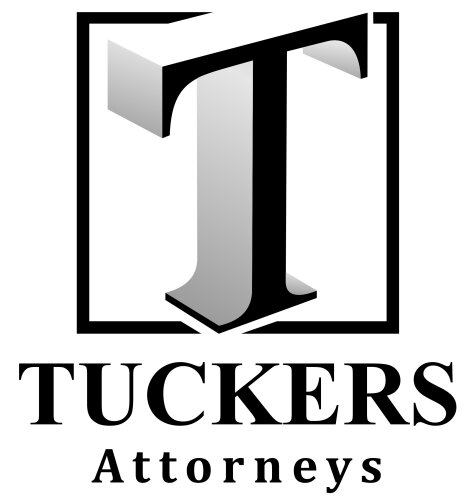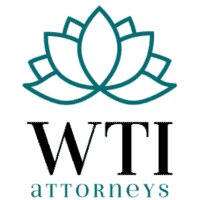Best Labor Law Lawyers in Boksburg
Share your needs with us, get contacted by law firms.
Free. Takes 2 min.
List of the best lawyers in Boksburg, South Africa
About Labor Law in Boksburg, South Africa
Labor Law in Boksburg, as in the rest of South Africa, is a set of rules and regulations designed to govern the relationships between employers and employees. Its main aim is to ensure fair treatment, regulate working conditions, and prevent exploitation in the workplace. The laws cover vital areas such as employment contracts, working hours, leave, dismissal procedures, dispute resolution, and workplace health and safety. In Boksburg, these laws are enforced in line with national statutes, with the Department of Employment and Labour ensuring compliance and the Labor Courts adjudicating employment disputes when necessary.
Why You May Need a Lawyer
Labor Law can be complex and navigating workplace disputes or issues without legal help can be challenging. Here are common situations where individuals or businesses may benefit from legal assistance:
- Facing unfair dismissal or retrenchment - Dealing with workplace discrimination or harassment - Negotiating severance packages - Drafting or reviewing employment contracts or workplace policies - Handling wage or overtime disputes - Defending disciplinary actions or responding to warnings - Addressing claims related to workplace injuries or occupational health issues - Assisting with labor union negotiations - Managing collective bargaining disputes - Navigating the procedures at the Commission for Conciliation, Mediation and Arbitration (CCMA)
A lawyer with expertise in Labor Law can ensure your rights are protected, provide guidance on complex processes, and help resolve disputes efficiently.
Local Laws Overview
Labor Law in Boksburg is governed mainly by national legislation, which applies across all provinces and cities in South Africa. Some of the most important laws include:
Basic Conditions of Employment Act (BCEA), 1997: Sets minimum standards for employment, including working hours, leave, and notice periods. LRA - Labor Relations Act, 1995: Regulates labor practices and the resolution of disputes through bodies like the CCMA. Employment Equity Act, 1998: Promotes equal opportunity and prohibits unfair discrimination. Occupational Health and Safety Act, 1993: Ensures the safety of employees in the workplace. Unemployment Insurance Act, 2001: Provides short-term relief for workers who become unemployed or are unable to work due to specified reasons.
Labor issues in Boksburg are often handled by local CCMA offices, the Department of Employment and Labour, and, if necessary, the Labor Courts. Employers and employees are both required to comply with national standards, and there are strict processes for dispute resolution and disciplinary actions.
Frequently Asked Questions
What is unfair dismissal, and what can I do if I am dismissed unfairly?
Unfair dismissal occurs when an employer ends your employment for reasons that are not legally permitted, or fails to follow the required procedures. If you believe you have been unfairly dismissed, you can refer the dispute to the CCMA within 30 days of the dismissal.
What are my rights if my employer is not paying me the agreed wage?
You are entitled to receive at least the national minimum wage or the wage specified in your employment contract. If your employer fails to pay, you can lodge a complaint with the Department of Employment and Labour or the CCMA.
Am I allowed to take sick leave, and how much can I take?
Employees are entitled to six weeks of paid sick leave in a 36-month cycle, according to the BCEA. During the first six months of employment, employees are entitled to one day of paid sick leave for every 26 days worked.
What is the process for retrenchment in Boksburg?
Retrenchments must be conducted for legitimate operational reasons and in accordance with fair procedure. Employers must consult affected employees, provide relevant information, and allow for discussions on alternatives and severance. Disputes can be referred to the CCMA.
How is overtime compensated?
Overtime work must be compensated at one and a half times the employee's normal wage, or by agreement, with paid time off. Overtime is generally limited to 10 hours per week, unless otherwise agreed upon.
What can I do if I am being discriminated against at work?
The Employment Equity Act prohibits unfair discrimination in the workplace. You can raise the matter internally first, and if unresolved, refer the dispute to the CCMA or the Labor Court.
Are employment contracts required by law in South Africa?
Yes, employers are required to provide written particulars of employment to every employee. This includes details such as working hours, pay, duties, and leave entitlement.
What steps should I follow for a grievance at work?
Grievances should be reported to your supervisor or HR department. If unresolved internally, you can refer the issue to the CCMA for conciliation, and if necessary, arbitration.
What are my rights during a disciplinary hearing?
You have the right to be notified of the charges, to prepare your defense, to be assisted by a representative, and to present evidence and witnesses. Any decisions should be made fairly and impartially.
How can I report unsafe working conditions?
Unsafe conditions should be reported to your employer or the health and safety representative. If not resolved, you can report the matter to the Department of Employment and Labour for investigation.
Additional Resources
Several organizations and governmental bodies provide guidance and support in Labor Law matters in Boksburg and throughout South Africa:
- Department of Employment and Labour: Oversees compliance and workplace rights - Commission for Conciliation, Mediation and Arbitration (CCMA): Handles labor disputes and unfair dismissal cases - Labor Courts: Adjudicate complex labor law matters - South African Board for People Practices (SABPP): Offers professional advice and resources - South African Human Rights Commission (SAHRC): Addresses discrimination and human rights in the workplace
Next Steps
If you require legal assistance or have concerns related to Labor Law in Boksburg, consider the following steps:
- Collect all relevant documents, such as employment contracts, payslips, and correspondence - Attempt to resolve the matter internally through discussions with your employer or HR representative - If unresolved, consult a qualified Labor Law attorney who is familiar with local practices in Boksburg - Alternatively, approach the CCMA or the Department of Employment and Labour with your complaint - Attend any required hearings or meetings well-prepared and keep detailed records of all interactions
Legal rights and workplace protections are in place to ensure fair treatment for both employers and employees. Whether you are facing a dispute, need advice on your obligations, or require representation, seeking timely legal support can help you achieve the best possible outcome.
Lawzana helps you find the best lawyers and law firms in Boksburg through a curated and pre-screened list of qualified legal professionals. Our platform offers rankings and detailed profiles of attorneys and law firms, allowing you to compare based on practice areas, including Labor Law, experience, and client feedback.
Each profile includes a description of the firm's areas of practice, client reviews, team members and partners, year of establishment, spoken languages, office locations, contact information, social media presence, and any published articles or resources. Most firms on our platform speak English and are experienced in both local and international legal matters.
Get a quote from top-rated law firms in Boksburg, South Africa — quickly, securely, and without unnecessary hassle.
Disclaimer:
The information provided on this page is for general informational purposes only and does not constitute legal advice. While we strive to ensure the accuracy and relevance of the content, legal information may change over time, and interpretations of the law can vary. You should always consult with a qualified legal professional for advice specific to your situation.
We disclaim all liability for actions taken or not taken based on the content of this page. If you believe any information is incorrect or outdated, please contact us, and we will review and update it where appropriate.









